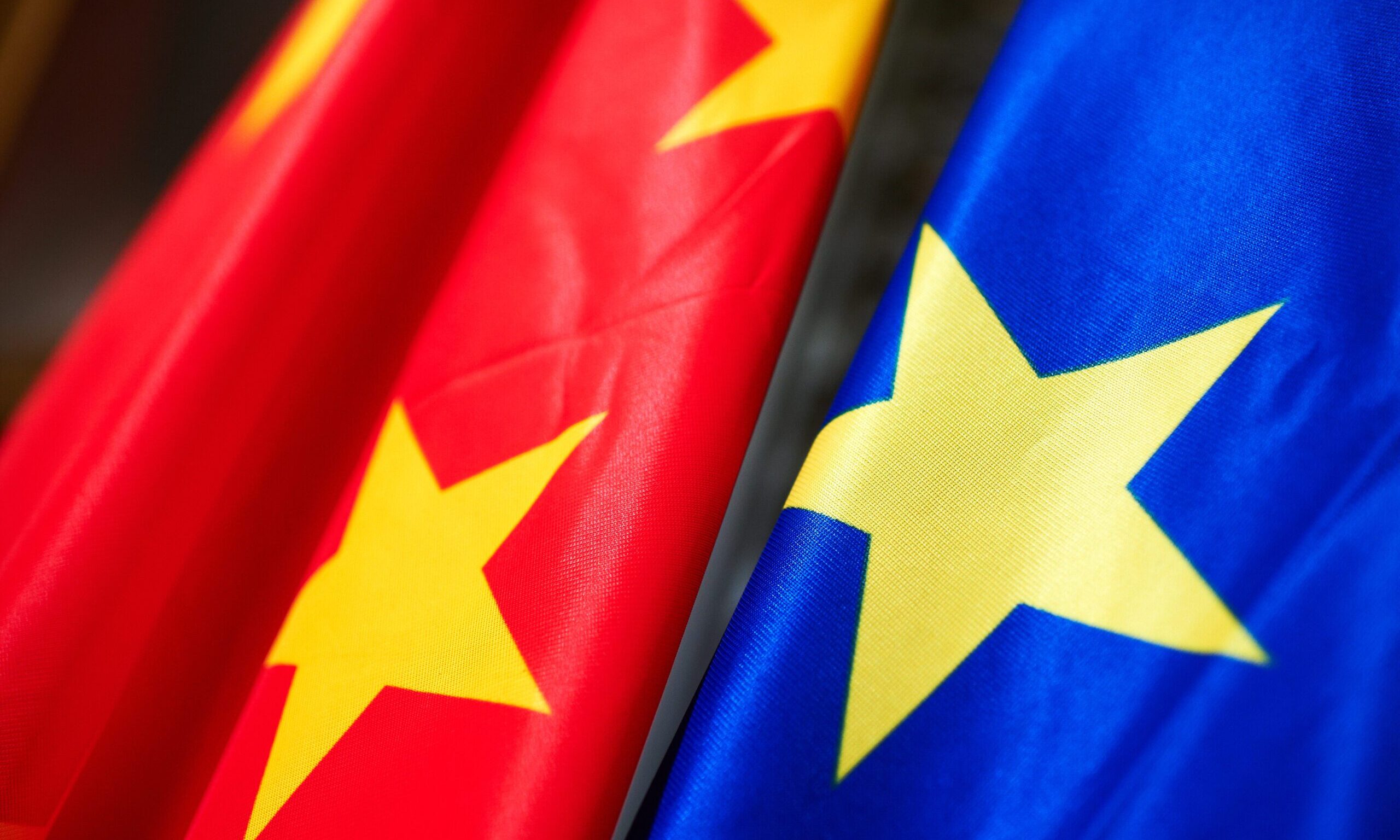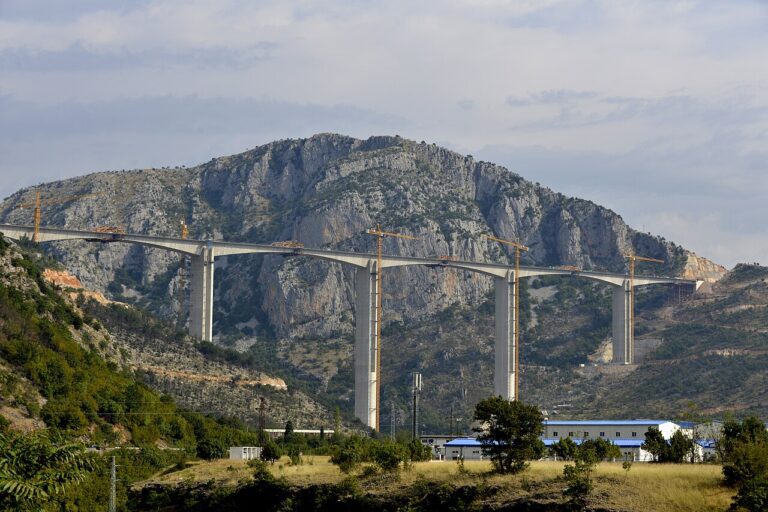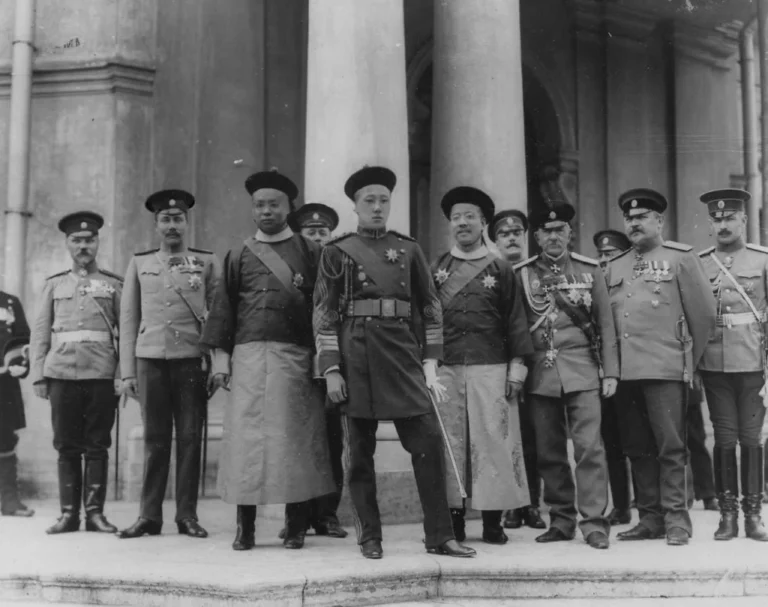
This article was originally published at The Diplomat. An extended version is republished here with the permission of the author.
European far-right and far-left political parties, though ideologically opposed, are finding common ground in their alignments with China, echoing Beijing’s narratives and raising concerns about foreign influence and manipulation.
Some European far-right and far-left political parties have discovered an unlikely area of convergence: a degree of alignment with China. While not universal across the ideological spectrum, certain parties and individuals within both groups have leveraged overlapping arguments to challenge the more critical stance adopted by several EU members and the European Commission toward Beijing. This emerging alignment, though nuanced and varied in intensity, holds potential implications for EU-China relations and the broader political dynamics within Europe.
The study on extreme political parties in the European Parliament published in April 2024 by the Association for International Affairs (AMO) revealed that on human rights, the far-right often downplays the significance of China’s violations. Some concede these issues exist but argue that Europe should prioritize its economic and strategic interests. These parties also tend to echo Beijing’s rhetoric on sovereignty, thereby supporting China’s territorial claims in regions like Hong Kong and Xinjiang, which reflects their nationalist ideologies that emphasize non-interference and sovereignty over interventionist policies.
Indeed, both Germany’s Alternative für Deutschland (AfD) and France’s Rassemblement National (RN) prioritize economic pragmatism and national sovereignty. These parties argue that decoupling from China or imposing economic sanctions harms European economies, advocating instead for stronger economic cooperation with Beijing. They view China as a crucial trading partner and a counterbalance to US influence, frequently criticizing the EU for its alignment with Washington on foreign policy issues.
Far-left parties, on the other hand, approach China from an entirely different ideological framework, rooted in critiques of Western imperialism and neoliberalism. They accuse the EU and the US of hypocrisy, using human rights as a geopolitical tool to undermine China while ignoring their own failures. The far-left views China’s state-led economic model as an alternative to the neoliberal capitalist paradigm, lauding its emphasis on state planning and development. Skeptical of militarized policies, far-left groups also advocate for dialogue and cooperation rather than confrontation. They tend to resist efforts to isolate Beijing, framing such moves as exacerbating global tensions and hindering progress on critical issues like climate change.
Shared Perspectives and Chinese Outreach
Despite their ideological differences, the far-right and far-left share common ground in opposing the EU’s assertive policies toward China. Both argue that these measures often harm European interests more than they impact Beijing. Furthermore, they resist EU motions targeting China’s human rights record or alleged foreign interference, framing them as infringements on sovereignty or distractions from Europe’s internal challenges.
China has been keenly aware of this political dynamic and has employed a variety of strategies and techniques to court the individuals of the extreme political parties. This has been demonstrated most recently by an espionage scandal involving German MEP Maximilian Krah (formerly from AfD). In April 2024, Krah’s parliamentary assistant, Jian Guo, was arrested on allegations of spying for China. Guo is accused of passing sensitive European Parliament information to Chinese intelligence services and surveilling Chinese dissidents in Germany. This incident prompted a search of Krah’s Brussels offices and raised concerns about the integrity of European democratic institutions. Krah, who employed Guo since 2019, expressed surprise at the allegations but dismissed Guo following the arrest. Despite this controversy, and a further allegation of receiving money from Russian propaganda channels, Krah succeeded in the European Parliament elections in June 2024.
Other techniques include organizing fully funded trips to China and providing support, including financial backing, to local fringe media outlets and social media accounts to amplify pro-Chinese narratives and elevate the voices of far-right and far-left representatives. The Czech Republic offers interesting laboratory for studying the latter phenomenon. Chinese influence efforts in Czechia, particularly through outlets like Chinese state-owned China Radio International (CRI), reveal a targeted strategy of leveraging Czech fringe political voices and groups to propagate Beijing’s narratives.
CRI has hosted controversial figures, such as former Communist Party officials and right-wing politicians, to amplify criticisms of the Czech government and promote anti-Western sentiment. These figures, often on opposite ends of the political spectrum, share a common skepticism toward the US and the EU, which Beijing exploits to align their rhetoric with Chinese interests. For example, CRI featured Jaroslav Čejka, a former Communist Party official, who framed the election of President Petr Pavel as the onset of “right-wing totalitarianism.” Similarly, an op-ed by Jindřich Rajchl, a far-right politician, criticized Pavel’s communication with Taiwan’s president, portraying it as US-orchestrated interference.
On Facebook, CRI content finds further traction among far-left and far-right groups. These groups, often fringe in nature, amplify posts on topics such as Chinese political events or narratives critical of EU or NATO actions. Posts shared by entities like the Communist Party of Bohemia and Moravia (KSČM) or nationalist and conservative groups show significant engagement, demonstrating how China’s content resonates with polarized segments of Czech society.
The Case of Raptor TV
China also utilizes local online TVs to embed its messaging discreetly. A notable example is the Czech YouTube channel “World through Raptor’s Eye” (Svět okem Raptora), run by Žarko Jovanović, a Czech activist of Serbian origin known for his pro-Russian stance and history of spreading disinformation. Jovanović’s Raptor TV has a significant following on Facebook, boasting 127,000 followers, though his YouTube channel garners only a modest audience of several dozen subscribers. Despite his limited reach on YouTube, Jovanović uses the platform to solicit financial contributions to his internet TV from his followers, leveraging their support to sustain operations. Jovanović himself has faced financial difficulties, which underscores the vulnerability of such individuals to external influence. These personal and financial pressures make them susceptible to cooperation with malign powers that are eager to exploit ideological alignments or financial desperation to advance their narratives.
Jovanović’s channel actively disseminates pro-Chinese messaging that aligns closely with Beijing’s strategic interests. The channel features 243 videos published between late February 2024 and October 2024, varying in length from one minute to 30 minutes and released at irregular intervals, although since mid-October, the channel has been inactive.
An analysis of the last 15 videos, published between September and mid-October, reveals clear patterns in the content. About half of the videos focus on highlighting China’s economic advancements, technological innovation, and achievements in poverty alleviation. China is portrayed as a global leader in green energy, modern infrastructure, and technological modernization. The narrative repeatedly underscores China’s developmental successes, contrasting them with the perceived shortcomings of the West.
Approximately a quarter of the content is critical of Western powers, particularly the European Union and the United States. These videos frame the West as self-interested and hypocritical, emphasizing its colonial past and alleged inefficiency in addressing global challenges. Specific themes include critiques of Western environmental and human rights policies, which are juxtaposed with China’s purported pragmatism and effectiveness. The videos often argue that Western nations act irrationally or emotionally, undermining international stability, while China is presented as a reliable partner, especially in Africa. In this context, China’s partnerships in Africa are depicted as constructive and mutually beneficial, which is contrasted to the exploitative legacy of Western colonialism.
Geopolitical issues account for about 20 percent of the content, with significant focus on Taiwan, depicted as a key threat to Chinese sovereignty. The channel endorses the One-China Principle and highlights the successes of initiatives like the Belt and Road Initiative, particularly in Africa and Central Europe. These narratives serve to reinforce China’s geopolitical stance and ambitions, framing its actions as essential for global stability and development. The remaining content highlights personal stories and human-interest angles designed to showcase China’s positive global influence. Examples include accounts of experiences on China’s high-speed trains or testimonials from individuals involved in Chinese development projects in Africa. These narratives aim to humanize China’s global image, making its influence more relatable to international audiences.
The channel’s overall tone is strongly pro-Chinese, presenting the nation as innovative, inclusive, and transformative, while painting the West as colonial, hypocritical, and inefficient. A notable feature is the frequent use of personal testimonies and statistical data to substantiate its claims. The channel also employs consistent rhetorical strategies, often repeating key phrases such as “win-win cooperation,” “core national interests” (particularly in relation to Taiwan), and “mutual respect.” These phrases are intended to underscore China’s pragmatism and credibility as a global leader, which stands in contrast to the perceived chaos and inconsistency of Western approaches.
Another striking characteristic of the channel is its highly selective focus. Positive aspects of Chinese policy are strongly emphasized, while negative elements are completely omitted. For instance, one video claims that EU sanctions on Chinese automobiles harm Europe more than China. Another showcases how the lives of Tibetans have allegedly improved under the government’s ‘resettlement and development’ programs, glossing over any controversies surrounding such policies.
The channel awkwardly repurposes content from Chinese state media outlets like CGTN, adding Czech subtitles and employing AI-generated moderators in a manner that appears amateurish and unpolished. Nevertheless, this clumsy integration, while lacking sophistication, still effectively spreads Beijing’s narratives to local audiences. Crucially, the channel fails to disclose the origins of its material, obscuring the role of foreign influence and raising significant concerns about the covert manipulation of public opinion through deceptive tactics.
What to Watch
The convergence of some far-right and far-left political parties in Europe with China poses challenges not only to EU-China relations but also to European democratic institutions. As the ideological divides deepen and foreign influence operations become more sophisticated, the risk of manipulation grows, threatening both political stability and public trust.
Moving forward, it is crucial to monitor the evolving rhetoric and tactics employed by these political extremes and their connections to external actors like China. Transparency in media sources, stronger oversight of foreign influence, and a nuanced understanding of the ideological dynamics at play will be vital in mitigating the impact of these relationships. As Europe grapples with its internal divisions, the ability to safeguard democratic integrity against covert manipulation will remain a critical test of its resilience.
Written by
Ivana Karásková
ivana_karaskovaIvana Karásková, Ph.D., is a Founder and Lead of CHOICE & China Projects Lead at the Association for International Affairs (AMO) in Prague, Czech Republic. She is a an ex-Fulbright scholar at Columbia University, NYC, a member of Hybrid CoE in Helsinki and European China Policy Fellow at MERICS in Berlin. She advised the Vice-President of the European Commission, Věra Jourová, on Defense of Democracy Package.


